Search Results
Showing results 1 to 20 of 40
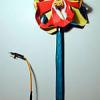
Wandering Wands
Source Institutions
In this activity, learners construct wands that play different notes depending on information from light sensors programmed via a PICO Cricket.
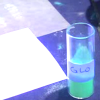
Glowing in the Dark
Source Institutions
In this activity, learners explore phosphorescence and how certain materials can absorb and store energy from a light source.
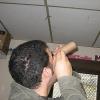
Spectroscope
Source Institutions
In this activity (posted on March 12, 2011), learners follow the steps to construct a spectroscope, a tool used to analyze light and color.
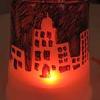
Night Lights
Source Institutions
In this activity, learners create night lights using a plastic cup, programmable PICO Cricket, tri-color LED, and sensor.

Make a Light Fountain
Source Institutions
In this optics activity, learners make a "light fountain" from a clear plastic bottle, flashlight, and other simple materials.
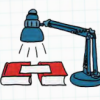
Light Bulb Challenge
Source Institutions
In this activity, learners explore the difference between compact fluorescent light (CFL) bulbs and traditional incandescent bulbs.
Guiding Light
Source Institutions
In this optics activity, learners use glass and water to demonstrate total internal reflection (TIR).

Oil Spot Photometer
Source Institutions
In this math activity related to light, learners assemble a photometer and use it to estimate the power output of the Sun.
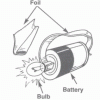
Bright Lights
Source Institutions
In this activity about electricity, learners imagine that they are out in the wilderness and it is getting dark. Their task is to use the materials supplied to build a simple flashlight.
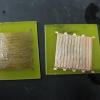
Photolithography
Source Institutions
In this activity, learners use UV light to transfer a pattern onto a plastic board. The pattern is transferred by placing a mask (a transparency sheet with the pattern) on a plastic board.
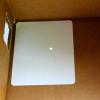
Pinhole Viewer
Source Institutions
In this activity, learners discuss and investigate how cameras, telescopes, and their own eyes use light in similar ways.
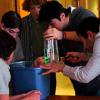
Total Internal Reflection
Source Institutions
In this activity, learners use a laser pointer, empty soda bottle, rubber plug and water to demonstrate total internal reflection.
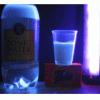
Glow Up
Source Institutions
In this activity, learners explore chemiluminescence and fluorescence. Learners examine 3 different solutions in regular light, in the dark with added bleach solution, and under a black light.
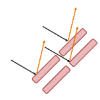
Liquid Crystals Interact with Light!
Source Institutions
In this two-part activity, learners explore the properties of liquid crystals, which are responsible for why mood rings change color.
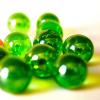
Big Wave
Source Institutions
This is an activity about waves. Using marbles, paper clips and rubber bands, learners explore how waves behave.
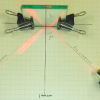
Mirror, Mirror
Source Institutions
In this activity, learners test the Law of Reflection based on experimental evidence. Learners produce raw data and explanations based on their data: pencil tracings of incident and reflection rays.

Critical Angle
Source Institutions
In this optics activity, learners examine how a transparent material such as glass or water can actually reflect light better than any mirror.

Stroboscope
Source Institutions
In this activity (posted on March 20, 2011), learners follow the steps to construct a stroboscope, a device that exploits the persistence of vision to make moving objects appear slow or stationary.
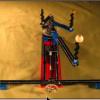
LEGO Orrery
Source Institutions
Use this model to demonstrate the goal of NASA's Kepler Mission: to find extrasolar planets through the transit method.
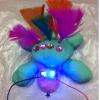
Dough Creatures
Source Institutions
In this technology activity, learners light up the room with electrifying play dough creations. Learners use conductive and insulating homemade play dough to build simple circuits.
